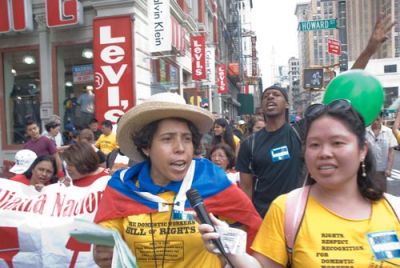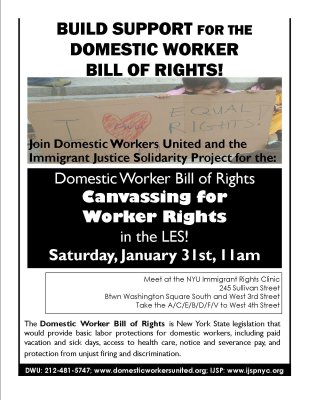Podcast: Play in new window | Download
Updates:
- In Memory of Attorney Rick Wagner – Guest: Marty Needelman, Project Dir. / Chief Counsel of Brooklyn Legal Services Corporation A
- Center For Constitutional Rights: Torture Team Trading Cards – Free
—
G20 Protest Permit Lawsuits : First Amendment Rights Challenge – Jules Lobel
G20 lawsuits filed to allow for peaceful demonstration challenged critical First Amendment rights. The right to demonstrate. Lawsuits filed on behalf of 6 activist groups including Code Pink, requested permits, such as permits to use public parks. The lawsuit brought against the city of Pittsburgh and the US Secret Service states protesters will engage in peaceful, constitutionally protected expressive activities. Jules Lobel, professor of law at the University of Pittsburgh had said to the Pittsburgh Post-Gazette, “When you have reports of huge numbers of police coming in, it suggests they plan to cordon off much of Pittsburgh and prevent meaningful protest.”
- Oppressive environment in Pittsburgh once G20 was announced.
- Heavy police presence, roads are closed, 4 to 5 thousand police from out of Pittsburgh
- Classified as a National Security event, meaning the US Secret Service controls what’s going to happen
- Protest groups sent in applications for permits in July and August. The city, either did not respond or stall granted peaceful permits. Groups with long histories of non-violent protests, artists, ecumenical groups, environmental groups that wanted to set up a sustainability fair.
- Code Pink wanted to set up a tent city in the major park of downtown Pittsburgh. Bail Out The People
- We went to court because for a long time, the city would not give these groups a permit.
- In the lawsuit, we demanded that the city give a permit to the groups they’ve been negotiating with and allow the groups to use the park downtown for its protests.
- As soon as we filed suit the city negotiated much more reasonably, but still refused to grant Code Pink their permit to use the downtown park two days before G20. The court could not find a compelling reason why Code Pink could not use the park, and were granted a permit and had a wonderful tent city in the park.
- Its always a fight now to get permits, and the courts usually win when they defer to the invocation of national security.
- We also asked for overnight camping, far away from the convention center, again, no security concerns.
- The group feeds demonstrators, they grow organic food, they run a bus on organic fuel, an environmentally safe and sound operation. Here’s what happened:
- Police were suspicious, the first thing they did was give them a ticket and impounded their bus for parking the bus more than 12 inches from the curb. They got the bus back, paying 220.00.
- Some industrial artists rented out their lot to the group and allowed buses (which had kitchens in them) to park there. The next day 20 police in full riot gear, broke into the place and demanded to search without a warrant
- The artist who owns the lot after arguing with police, finally allowed the police to search, they found nothing.
- Then they sent out building inspectors to where the people were staying and threatened the artists to get rid of these people or face a 1000.00 a day fine. (These are people who are coming to give out free food)
- They then went to a black community, found an abandoned school and the owner said you can stay here.
- Before they could pull their buses in, a police and many police cars, stopped them and searched everyone and the buses again. Giving citations for parking wheel up on curb, and saying they needed a bus driver to drive commercial vehicle (their bus)
- They pressured the owner of the abandoned school, and finally they had to move again. They found a church, the police followed them there. The police tried to get the pastor to evict them, but he wouldn’t.
- A lawsuit was brought for pattern of harassment and the judge said you can sue for damages after the G20 Summit.
Guest – Jules Lobel, Vice President of the Center for Constitutional Rights and Professor of Law at the University of Pittsburgh. Through the U.S. Center for Constitutional Rights, Jules Lobel has litigated important issues regarding the application of international law in the U.S. courts. In the late 1980’s, he advised the Nicaraguan government on the development of its first democratic constitution, and has also advised the Burundi government on constitutional law issues.
—
The New Domestic Order: Domestic Workers Unite
Domestic workers in New York City are pushing for the passage of their own “Bill of Rights” style protection. Most domestic workers are under paid in the United States, and now for many its especially difficult to make ends meet. New York’s domestic workers are calling for their own government bailout. The growing movement is made up mostly of women, it’s multi-ethnic, from countries such as the Philipines, Barbados, Trindad, Jamaica and Nepal. Some workers were abuse, others have been let go from their jobs without notice or proper compensation. The ranks of domestic-worker activists are filled with globalization’s refugees writes Lizzy Ratner, correspondent with the Nation Magazine.
EVENT: Damayan Migrant Workers Association is organizing a workshop on unemployment benefits. October 3, (1-4PM) Held at 53-22 Roosevelt Avenue, Woodside, Queens.
Lizzy Ratner / Linda Abad:
- Linda Abad: Member of the Damayan Migrant Workers Association working with Domestic Workers Alliance and Domestic Workers United campaigning for the passage of the New York Bill of Rights.
- New York Bill of Rights, fair labor standards, recognition, and win respect and dignity for the work force for women and some men who work in the homes of American families.
- There are 200 thousand domestic workers in New York City and about 15 percent are Filipino domestic workers like me. I’m a part-time housekeeper for a couple on the West Side
- I was a government employee in the Philippines, I had a home and 2 children. Income was too low to support family. My first job in the U.S. I worked for a family with 3 children in a big house. I started at 7AM and ended at 9PM. It was a big home, I had to take care of children, cook meals. I was getting 225.00 a week.
- When you’re working in the privacy of homes, you do not have a network, organization.
- Domestic Workers Bill of Rights, passed the assembly now, not the Senate.
- Most domestic workers don’t know that under New York law, after working 44 hours, you get time and a half
- Nine out of 10 domestic workers do not get health insurance, we really need it. We’re exposed to sick children, hazardous cleaning chemicals.
- The inclusion bill in the New York State assembly does not have health coverage. Many domestic workers work off the books. Domestic Workers United large group of Caribbean and Latina domestic workers.
- Lizzy Ratner: I was lucky enough to accompany (as a journalist) a large, large group of domestic workers and allies to Albany in Spring 2008. What I saw inspired me and much of what I learned horrified me. This was the fourth year of pushing for the Domestic Workers Bill of Rights. If you want rights for domestic workers, you have to organize and begin to change the laws.
- There was a sense of rebellious exuberance, defiance. Led by women, by women of color, by immigrants, documented and undocumented. Domestic workers have organized in California, Texas, Seattle, Miami, Maryland and New York
- The United States has come a long way in creating a civilized country, but somehow it’s difficult for lawmakers to see the righteousness of giving dignity and fair standard to this labor force.
- September 29, another trip to Albany to put pressure on the New York State Senate
Guest – Lizzy Ratner, journalist/correspondent with the Nation Magazine. Linda Abad, domestic worker and organizer for the Damayan Migrant Workers Association.
——————————————————————–

